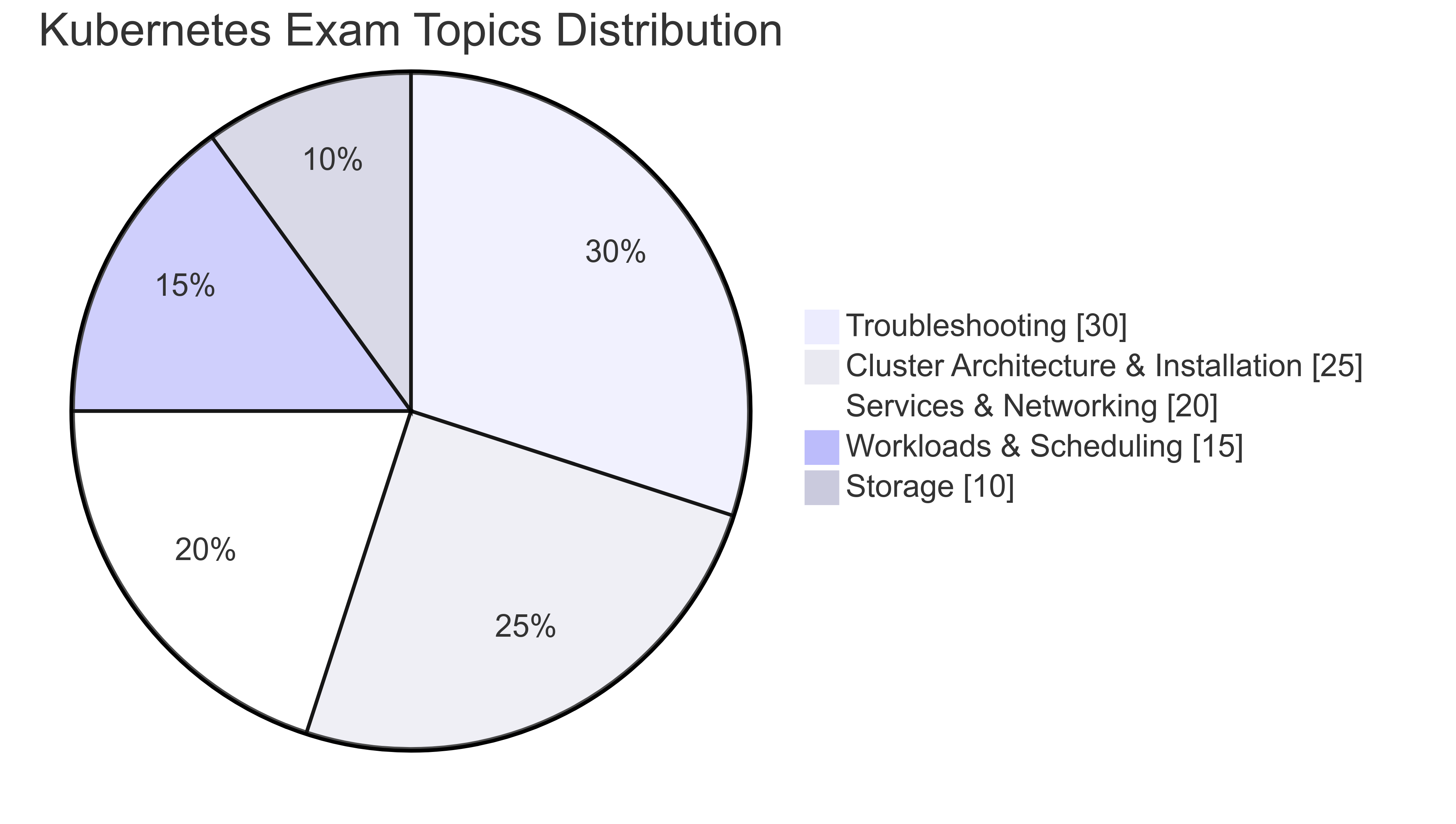
Certified Kubernetes Administrator (CKA) Exam Updates for 2025
The Certified Kubernetes Administrator (CKA) exam is undergoing updates to align with the newer Kubernetes versions and best practices. If you’re planning to take the exam, it’s probably pretty good to understand these changes and adjust your study plan accordingly. And not to spend time on things that have or will be removed (depending on when you plan to take it.)
When Do These Changes Take Effect?
The new exam format will be implemented no earlier than February 10, 2025, as announced by The Linux Foundation. Any exam taken after this date will follow the updated syllabus.
What’s Changing?
The five core CKA exam domains remain unchanged, but their competencies have been refined to focus on updated Kubernetes technologies and practices.

Here’s a breakdown:
Troubleshooting (30%) – Stronger Focus on Cluster & Network Diagnostics
This is the largest category, be sure to master the topics well.
-
Expanded focus on network troubleshooting, including internal and external connectivity.
-
Deep dive into cluster and node diagnostics.
-
Monitoring and evaluating container logs and resource usage.
-
Identifying and resolving service-related issues.
📌 The troubleshooting is the largest category, be sure to master the topics well.
Cluster Architecture & Installation (25%) - New Stuff Added
-
Helm and Kustomize added for managing deployments.
-
Understanding extension interfaces: CNI (networking), CSI (storage), CRI (runtime).
-
Custom Resource Definitions (CRDs) and Operators included for extending Kubernetes functionality.
❗ Etcd backups and Kubernetes version upgrades are deprioritized.
Storage (10%) – Advanced Volume Management
-
Greater focus on dynamic volume provisioning.
-
Emphasis on volume types, access modes, and reclaim policies.
-
Management of Persistent Volumes (PVs) and Persistent Volume Claims (PVCs).
Workloads & Scheduling (15%) – Scaling & Admission Control
-
New emphasis on Pod admission, scheduling policies, and node affinity.
-
Stronger focus on autoscaling for workloads.
-
Ensuring Kubernetes workloads are self-healing and resilient.
Services & Networking (20%) – Introducing Gateway API
-
Gateway API replaces traditional Ingress, offering more control over routing and load balancing.
-
Expanded focus on CoreDNS, including troubleshooting and configuration.
-
Defining and enforcing Network Policies.
-
Managing ClusterIP, NodePort, and LoadBalancer service types.
What’s Removed?
While the majority of the syllabus is expanding, some topics are being deprioritized:
-
Etcd backup/restore management is no longer a core focus.
-
Kubernetes version upgrades are now considered less critical for the exam.
How to Prepare for the New CKA Exam
To succeed in the updated exam, align your study plan with the new competencies:
✅ Learn Helm & Kustomize – These tools are commonly used for managing configurations and deployments of the applications in Kubernetes.
✅ Deepen Networking Knowledge – Be good in Gateway API, CoreDNS, and troubleshooting cluster connectivity.
✅ Learn CRDs & Operators – Understanding how to create and manage Kubernetes extensions is now a key requirement.
✅ Get Hands-on with Dynamic Storage Provisioning – Experiment with different volume types, access modes, and reclaim policies.
✅ Learn Troubleshooting Skills – Practice debugging node failures, network issues, and misconfigured workloads.
Key Dates: When Do These Changes Go Live?
According to The Linux Foundation, the new CKA exam syllabus will be implemented no earlier than February 10, 2025. The exact release date is yet to be confirmed, but if you’re taking the exam on or after this date, you will be tested on the updated content.
📌 Important Note: The exam date, not the purchase or booking date, determines which version of the test you take.
Stay Updated
For the latest Kubernetes articles and tutorials subscribe to our newsletter.
